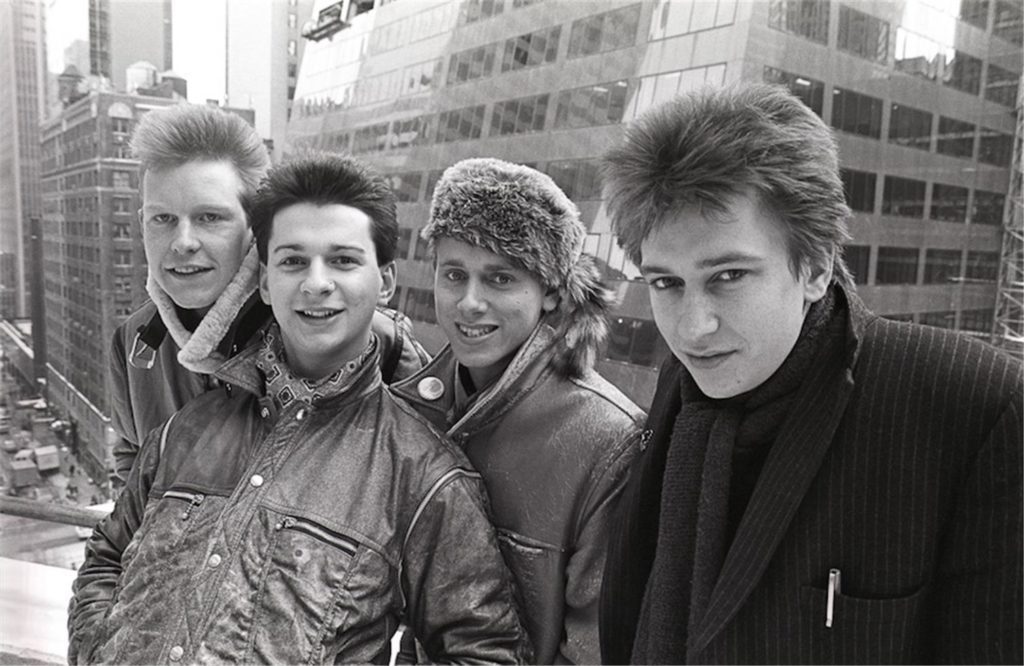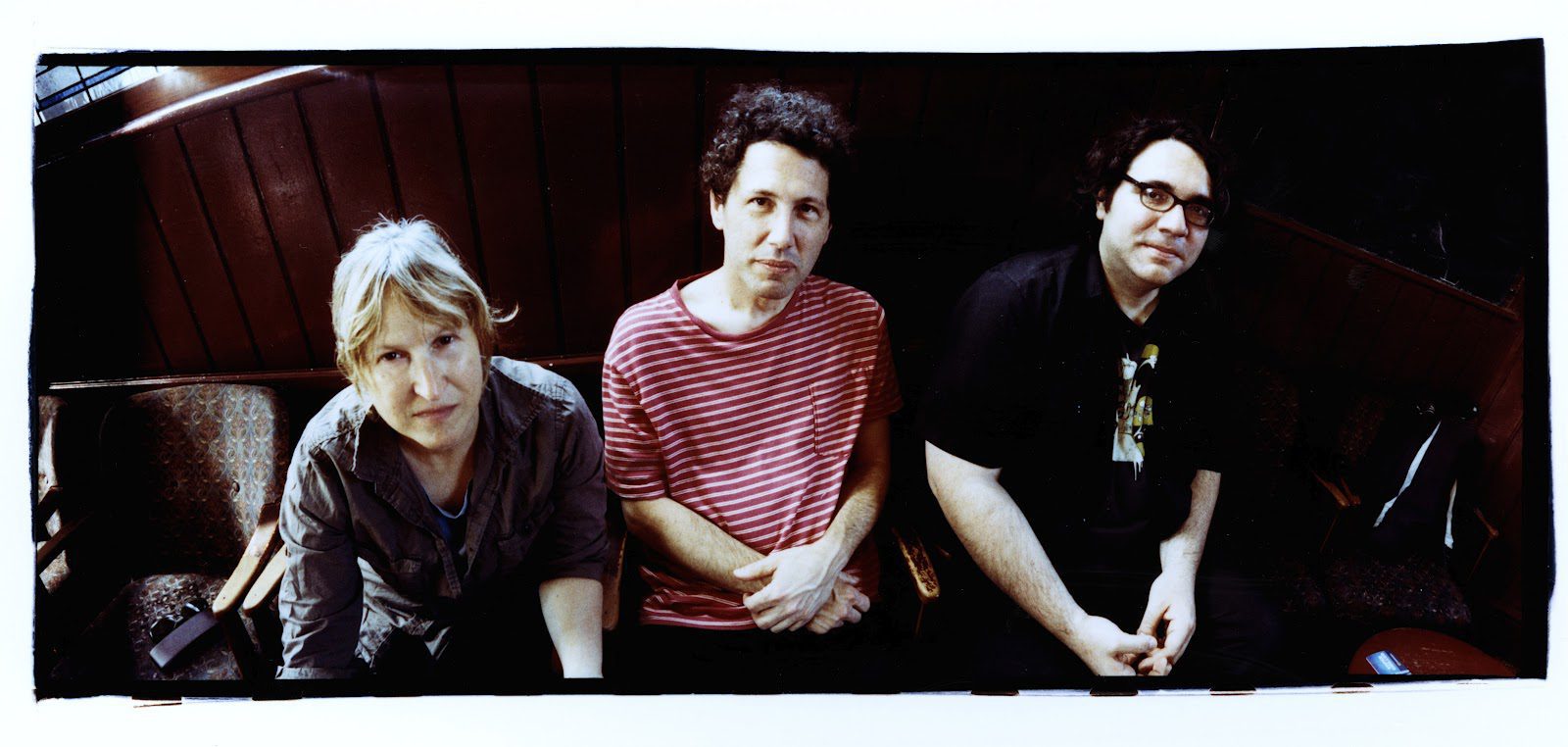

In the dark of the club, I’ll scroll through the voluminous list of artists contained on one of my flash drives, quickly settling on Depeche Mode. I’ll scan the track list, maybe giving the choice a second or two of though before queuing “Everything Counts.” Depending on the gig, it might be the original version of the song or a remix, but, for the past few years, some variation of that 1983 hit has crept into more of my DJ sets than I can recall. It’s not entirely intentional, but it’s not a random selection either.
It might seem like a basic choice. “Everything Counts” is now a classic in the Depeche Mode catalog, absolutely a song that you would expect to hear when DJs are playing synthpop or ’80s alternative sets. To be totally honest, it’s ordinarily something I find a little too obvious for the dance floor. For years, there were a number of other songs from the band that I preferred to play. Sometime after Trump was elected, though, I heard “Everything Counts” as more than just a club hit. What stuck with me was the refrain: “The grabbing hands, grab all the can/All for themselves after all.” I could see people singing along with the jam and, even if they had done this hundreds of times before, their passionate response struck a chord with me. Maybe, collectively, we were all feeling “Everything Counts” harder than we had in the past. It’s a classic, but one with newfound relevance.
I DJ in and around downtown Los Angeles, in neighborhoods where local subcultures settled after they were essentially priced out of Hollywood and West Hollywood years earlier. The parties I play are usually in small clubs or bars where the cover charge is either non-existent or nominal. They’re non-elitist spaces – almost defiantly so – in neighborhoods that are currently in the midst of gentrification. Out on the smoking patio, certain subjects consistently come up in conversation, like the rents that keep rising and the various jobs and side-gigs that help us attempt to keep up with that. It’s the same sort of conversations that come up with rideshare drivers on the way home, short jaunts taking us down streets where there are visibly many more people sleeping than there were a few years ago. Quite often, “Everything Counts” is the song stuck in my head as I try to fall asleep.
At home, I listen to Construction Time Again, the album that spawned “Everything Counts.” Released in 1983, it was Depeche Mode’s third album and significant for a few reasons. It was their first album with Alan Wilder credited as an official member, marking the start of what would become a Golden Age for the band. Musically, they delved into heavier, darker electronic sounds – the industrial band Einstürzende Neubauten is said to have been an influence on this album – that would mark the evolution of their sound for albums to follow. Lyrically, both Martin Gore and Alan Wilder would tap into political concerns, income inequality and environmental degradation among them, that continue to impact communities around the world.
I find it difficult to think of another album that speaks as poignantly about American Life in the 2010s as this one that was made in the U.K. well over 30 years ago. Trump’s election was a tipping point. He’s the loudest, most visible symbol of a particularly vile strain of late-capitalism greed that plagues the globe. So, while I might turn to Construction Time Again in part because of his presidency, it’s not solely because of that. What I hear now when I listen to this album is both a document of the early 1980s and a warning, perhaps an unintentional one, of what was to come.
On some songs, the messages are obvious. In “Pipeline,” Martin Gore proposes a Robin Hood plan: “We’re laying a pipeline/Taking from the greedy/Giving to the needy.” It’s the reaction against the avarice depicted in “Everything Counts.” In “The Landscape Is Changing,” written by Alan Wilder, nature’s future is bleak – “The landscape is changing/The landscape is crying/Thousands of acres of forest are dying” – and the message to “just take good care of the world” is loud. Sadly, this plea has only grown more urgent in the face of continued environmental crisis.
In other places, admittedly, the lyrics are a bit more open to interpretation. In “More Than a Party,” another Gore-penned song, there are the lines, “Keep telling us we’re to have fun/Then take all the ice cream so we’ve got none.” I hear this now and think of the ways the American public now has been duped over and over again until we ended up with multiple generations of people saddled with debt via student loans or health care costs, inhabiting cities where the cost of living has been steadily growing beyond our wages.
There’s a mix of hard emotions throughout the album – cynicism, fear, frustration – but there are also traces of optimism. The last full song on Construction Time Again is “And Then…,” a somber, but hopeful tune that isn’t well known outside of fan circles. It opens with a suggestion to take a world map and “tear it into pieces.” The song calls for a “universal revolution,” but, seemingly, it’s one that would be fueled by love. We’re told that “if we trust in our hearts, we’ll find the solution.” If there’s a lesson to be learned from this album, it’s in this song. Sure, the “grabbing hands” are working against the masses, but we have the power to change that.




